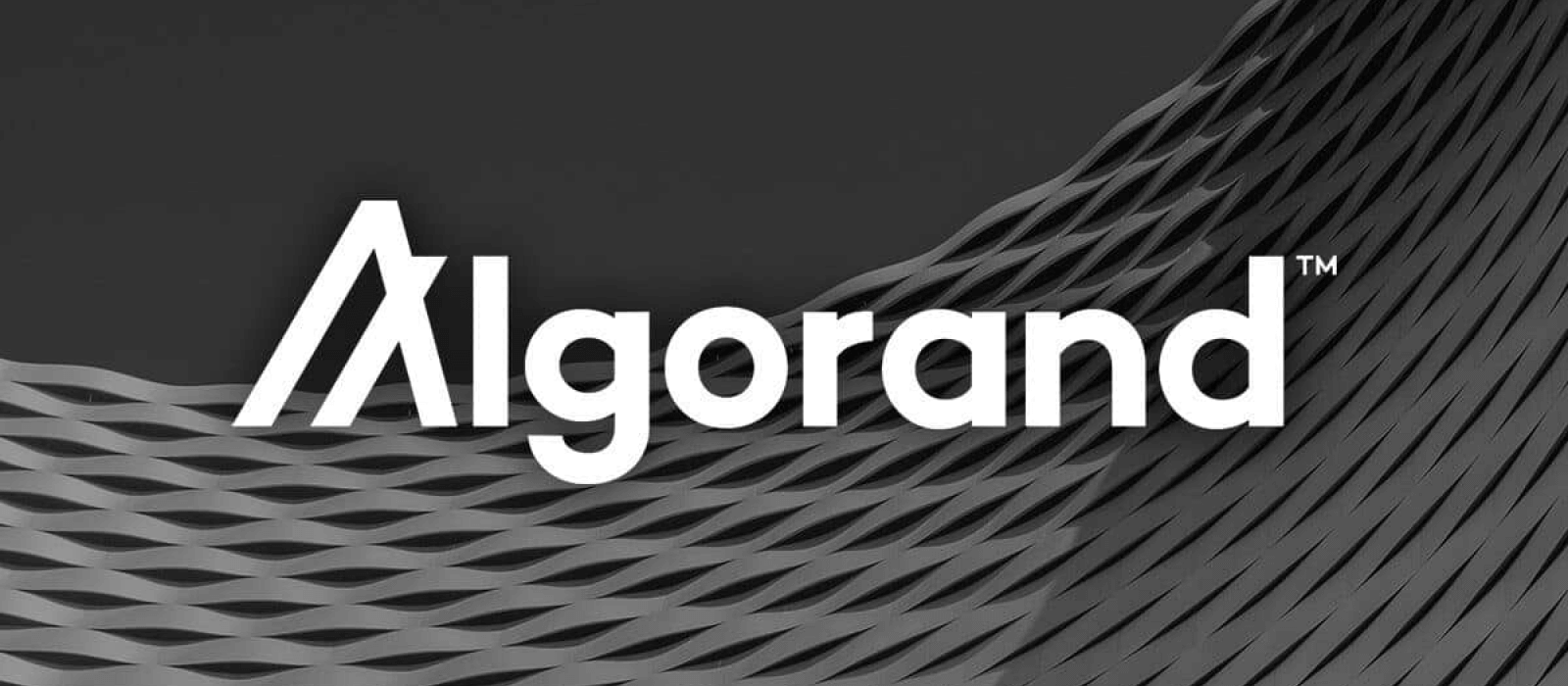Blockchain technology has emerged as a disruptive force with the potential to revolutionize the investment landscape. In this article, we delve into the transformative power of blockchain in the realm of investments and finance.
We'll explore how this groundbreaking technology is reshaping traditional investment methods, and why it's crucial for both seasoned investors and newcomers to understand its significance.
Traditionally, investments have been subject to intermediaries, extensive paperwork, and opaque processes. However, blockchain introduces a new paradigm by offering decentralization, transparency, and security. It eliminates the need for middlemen, reduces the risk of fraud, and provides a trustless environment where transactions are recorded on an immutable ledger.
The impact of blockchain on traditional investment methods is profound. It democratizes access to investment opportunities, making them more inclusive and global. It enables fractional ownership through tokenization, making high-value assets like real estate and art accessible to a wider audience. Smart contracts automate complex investment agreements, ensuring that terms are met without the need for costly legal intermediaries.
As we embark on this journey through the blockchain-powered investment landscape, we'll explore its benefits, challenges, and real-world applications. Join us as we uncover how blockchain is changing the game and opening up exciting possibilities for investors and entrepreneurs alike.
Blockchain Investment Basics
To truly understand the impact of blockchain on investments, it's essential to grasp the fundamental concepts that underpin this revolutionary technology.
Decentralization: At the core of blockchain is decentralization. Unlike traditional financial systems that rely on central authorities (banks, governments), blockchain operates on a distributed network of computers. This means there's no single point of control or failure. In the investment sector, decentralization removes the need for intermediaries like banks or brokerage firms. Investors can engage directly with opportunities, reducing fees and potential conflicts of interest.
Transparency: Blockchain offers unparalleled transparency. Every transaction on the blockchain is recorded in a public ledger that is accessible to anyone. This transparency is especially crucial in investments, as it ensures that all stakeholders have access to the same information. Investors can verify the legitimacy of investment opportunities, track the movement of funds, and assess the performance of assets in real-time.
Security: Security is paramount in investments, and blockchain excels in this area. Its use of cryptographic techniques ensures that data is tamper-proof and secure. In the investment sector, this means that ownership of assets can be securely represented through digital tokens. Smart contracts, self-executing agreements on the blockchain, automate processes while reducing the risk of fraud or dispute.
Immutability: Once data is recorded on the blockchain, it becomes nearly immutable. This immutability ensures that investment records are permanent and cannot be altered retroactively. This is particularly advantageous for maintaining an accurate history of ownership and transactions, vital for investment records.
Accessibility: Blockchain technology offers global accessibility. Investors from different parts of the world can participate in investments without facing geographical barriers or the need for a local presence.
In summary, the fundamental concepts of decentralization, transparency, security, immutability, and accessibility make blockchain technology highly relevant to the investment sector. They facilitate direct, secure, and transparent investment opportunities, reducing the dependency on traditional intermediaries and enhancing the overall efficiency and trustworthiness of the investment process. As we progress through this article, we'll delve deeper into how these concepts are applied in various blockchain-based investment models.
Revolutionizing Investment with Blockchain
Blockchain technology is fundamentally transforming the investment industry by introducing innovative solutions that enhance efficiency, security, and accessibility. Let's delve into how blockchain is reshaping investments through tokenization, smart contracts, and increased global accessibility.
Tokenization: One of the most significant impacts of blockchain on investments is asset tokenization. Traditional assets, such as real estate, art, and company shares, can be represented as digital tokens on the blockchain. This fractional ownership enables investors to purchase a fraction of an asset, making high-value investments accessible to a broader audience. For example, a luxury apartment can be tokenized into thousands of digital shares, allowing individuals to invest in a portion of the property.
Smart Contracts: Smart contracts are self-executing agreements with predefined rules written directly into code. In the investment sector, smart contracts automate complex processes. For instance, in an Initial Coin Offering (ICO), a smart contract can automatically distribute tokens to investors when they contribute funds, eliminating the need for intermediaries and reducing the risk of fraud. These contracts also enforce compliance with investment terms and regulatory requirements.
Increased Accessibility: Blockchain technology democratizes access to investment opportunities. Previously, investing in startups or accessing global markets often required extensive paperwork and intermediaries. With blockchain, investors can engage directly in a global marketplace. For instance, a person in Japan can invest in a startup based in the United States seamlessly and securely.
Examples of Success: Blockchain has already witnessed success stories in the investment sector. Projects like Ethereum, which introduced the concept of smart contracts, have raised billions of dollars in funding through ICOs. RealT, a platform for tokenizing real estate, has enabled fractional ownership of properties, making real estate investment more accessible. Security token offerings (STOs) have gained traction as regulated ways to tokenize traditional assets, providing a bridge between the blockchain world and the traditional financial system.
Blockchain's disruptive potential in investments is evident, offering new avenues for fundraising, reducing friction in investment processes, and expanding the universe of investment opportunities. As we delve deeper into this article, we'll explore the benefits and challenges associated with blockchain investments and provide insights into how individuals and businesses can navigate this evolving landscape successfully.
Benefits and Challenges of Blockchain Investments
Blockchain investments offer a myriad of benefits, but they also come with unique challenges and potential risks. Let's examine both sides of the coin:
Benefits of Blockchain Investments:
Reduced Costs: Blockchain eliminates the need for intermediaries, such as banks and brokers, which traditionally charge fees for their services. This reduction in intermediaries leads to significantly lower transaction costs, making it more cost-effective for investors.
Enhanced Security: Blockchain's use of cryptographic techniques ensures that data is secure and tamper-proof. Smart contracts add an extra layer of security by automating processes and reducing the risk of human error or fraud. Investors can have confidence in the integrity of their investments.
Global Reach: Blockchain technology operates on a decentralized global network. This means that investment opportunities are accessible to anyone with an internet connection, breaking down geographical barriers and opening up a truly global marketplace.
Fractional Ownership: Asset tokenization enables fractional ownership, allowing individuals to invest in high-value assets with small amounts of capital. This democratizes access to assets like real estate, art, and startups.
Liquidity: Tokenized assets can be traded more easily and quickly than traditional assets, enhancing liquidity. Investors can buy or sell tokens 24/7, providing flexibility and reducing the time and cost associated with liquidating investments.
Challenges and Risks of Blockchain Investments:
Regulatory Uncertainty: The regulatory environment for blockchain investments varies by country and is continuously evolving. Investors and businesses must navigate complex regulatory frameworks, which can change rapidly and impact the legality of certain investments.
Market Volatility: Cryptocurrencies, often used for blockchain investments, are known for their price volatility. This volatility can lead to substantial gains but also substantial losses. It's essential for investors to be aware of and manage this risk.
Security Concerns: While blockchain is secure, the surrounding ecosystem may not be. Hacks, scams, and fraudulent ICOs have occurred in the blockchain space. Investors need to exercise caution and perform due diligence.
Lack of Investor Protection: Unlike traditional financial systems, blockchain investments may not offer the same level of investor protection, such as insurance coverage or recourse in case of disputes.
Technological Challenges: Blockchain technology is still relatively new, and its infrastructure is evolving. Technical issues, software bugs, and scalability problems can affect investments.
Market Speculation: Many blockchain investments are driven by speculation rather than fundamentals. This speculative behavior can lead to bubbles and irrational exuberance.
In summary, blockchain investments present a promising frontier with significant advantages, including reduced costs, enhanced security, global accessibility, and fractional ownership. However, potential risks and challenges, such as regulatory uncertainty, market volatility, and security concerns, should not be overlooked. Investors should approach blockchain investments with a thorough understanding of both the benefits and the potential pitfalls.
Real-Life Use Cases
Examining real-world examples is an excellent way to understand how blockchain technology is making a tangible impact on fundraising and investment rounds. Let's explore a few noteworthy cases and the lessons they offer.
1. Ethereum's Initial Coin Offering (ICO)
Case Overview: Ethereum, a blockchain platform, conducted one of the most famous ICOs in 2014, raising over $18 million. Ethereum's ICO introduced the concept of smart contracts and decentralized applications (DApps) to the world.
Outcome: Ethereum's ICO marked the beginning of a new era in blockchain-based fundraising. It provided a platform for developers to create DApps and paved the way for thousands of successful projects to raise funds through ICOs. Ethereum's blockchain is now home to a vibrant ecosystem of decentralized applications.
Lesson: Ethereum's ICO demonstrated the power of blockchain to democratize fundraising and enable global participation. However, it also highlighted the importance of thorough due diligence for investors, as ICOs became notorious for scams and fraudulent projects.
2. RealT - Tokenizing Real Estate
Case Overview: RealT is a platform that tokenizes real estate properties, allowing investors to purchase fractional ownership through blockchain technology. This approach aims to make real estate investment more accessible and liquid.
Outcome: RealT has successfully tokenized multiple properties, making real estate investments accessible to a broader audience. Investors can buy and trade property tokens, bringing liquidity to an otherwise illiquid asset class.
Lesson: The RealT case illustrates how blockchain can break down barriers to entry in traditionally exclusive markets like real estate. It also underscores the importance of compliance with regulatory requirements when dealing with tokenized assets.
3. Security Token Offerings (STOs)
Case Overview: STOs are blockchain-based fundraising methods that issue security tokens compliant with regulatory frameworks. Various companies and startups have used STOs to raise capital while adhering to legal requirements.
Outcome: STOs offer a legal and regulated way to tokenize traditional assets, making them attractive to both investors and regulators. Companies conducting STOs prioritize compliance, investor protection, and transparency.
Lesson: STOs demonstrate the potential of blockchain to marry the benefits of tokenization with regulatory compliance. These cases underscore the importance of adhering to regional securities laws to avoid legal repercussions.
In conclusion, these real-life use cases showcase how blockchain technology has disrupted traditional fundraising and investment practices. They highlight the advantages of blockchain, such as accessibility, liquidity, and efficiency, while also emphasizing the importance of regulatory compliance and investor due diligence. As blockchain continues to evolve, these lessons will remain relevant for both entrepreneurs seeking funding and investors exploring this dynamic space.
Navigating Blockchain Investment Rounds
Blockchain technology has opened up exciting opportunities for startups and entrepreneurs to secure funding through various investment rounds. In this chapter, we'll provide a step-by-step guide on how to navigate these rounds successfully, including Initial Coin Offerings (ICOs), Security Token Offerings (STOs), and crowdfunding.
1. Define Your Project and Objectives:
Clearly articulate your project, its purpose, and the problem it aims to solve. Set specific objectives for your fundraising round, including the amount of capital needed and the timeline.
2. Choose the Right Investment Model:
Consider the type of blockchain-based investment that aligns with your project. ICOs are suitable for utility tokens, while STOs are ideal for security tokens. Determine whether crowdfunding platforms or private placements are the best fit for your fundraising goals.
3. Develop a Comprehensive Whitepaper:
Create a detailed whitepaper that explains your project's technology, use case, tokenomics, and roadmap. Emphasize the benefits of investing in your project and how it will generate value for token holders.
4. Build a Strong Online Presence:
Establish an informative and engaging website for your project, including team bios and project updates. Leverage social media and online communities to create awareness and engage with potential investors.
5. Create a Compelling Pitch Deck:
Craft a visually appealing pitch deck that summarizes your project and investment opportunity. Highlight the unique features of your blockchain solution, market potential, and competitive advantage.
6. Legal and Regulatory Compliance:
Engage legal experts to ensure compliance with regional securities regulations, especially for STOs. Clearly communicate the legal framework of your investment round to potential investors.
7. Token Sale and Fund Management:
Launch your token sale, ensuring a smooth and secure process for contributors. Implement robust fund management practices, including the use of smart contracts to automate transactions and disbursements.
8. Post-Investment Communication:
Maintain open and transparent communication with your investor community. Provide regular updates on project milestones, development progress, and market insights.
9. Attracting Investors:
Build relationships with blockchain-focused venture capitalists and angel investors. Participate in blockchain events, conferences, and meetups to network and showcase your project.
10. Continuous Improvement:
Continuously assess and refine your project based on investor feedback and market dynamics. Adapt to regulatory changes and emerging technologies to stay competitive.
By following these steps and embracing best practices, startups and entrepreneurs can navigate blockchain investment rounds effectively. Whether you're conducting an ICO, STO, or crowdfunding campaign, a well-thought-out strategy, clear communication, and compliance with regulations will increase your chances of securing the funding needed to bring your blockchain project to fruition.
The Future of Investment: Predictions and Trends
As we peer into the crystal ball of blockchain-based investments, several trends and developments are poised to shape the future of this dynamic landscape.
1. Regulatory Evolution: Regulatory frameworks for blockchain investments will continue to evolve. Governments and international bodies are working to strike a balance between fostering innovation and protecting investors. Expect clearer guidelines and increased compliance requirements.
2. Security Tokens: Security Token Offerings (STOs) will gain prominence. These regulated token sales will bridge the gap between traditional finance and blockchain, allowing investors to access a broader range of assets with confidence.
3. Institutional Participation: Institutional investors will increasingly enter the blockchain space. The arrival of big players will bring greater stability and liquidity to the market, potentially boosting the adoption of digital assets.
4. DeFi Transformation: Decentralized Finance (DeFi) will continue to innovate, offering new investment opportunities. DeFi platforms will expand their offerings beyond lending and borrowing, attracting more investors with diverse financial products.
5. Interoperability: Blockchain networks will strive for greater interoperability. Seamless communication between different blockchains will enable the efficient transfer of assets and data, enhancing investment options.
6. Enhanced Security Measures: As the value of blockchain assets grows, security measures will become paramount. Expect advancements in secure custody solutions and insurance products to protect investors from theft and loss.
7. Tokenization of Traditional Assets: Traditional assets like real estate, art, and stocks will become increasingly tokenized, making these investments more accessible, liquid, and divisible.
8. Sustainable Investments: There will be a growing emphasis on sustainable and socially responsible investments in the blockchain space. Tokenized assets that contribute to environmental and social goals will gain popularity.
In summary, blockchain-based investments are on a trajectory of significant growth and transformation. The future promises increased regulatory clarity, diverse investment options, and a more inclusive global market. As blockchain technology continues to disrupt and reshape the investment landscape, it's crucial for both investors and entrepreneurs to stay informed and adapt to these evolving trends.
To stay ahead of the curve, keep a watchful eye on regulatory changes, explore emerging investment models, and engage with the blockchain community. The future of investment is exciting and filled with potential, and those who embrace this evolution will be best positioned to reap the rewards.
As we conclude our exploration of the future of blockchain-based investments, it's clear that this landscape is poised for remarkable growth and innovation. To seize the opportunities that lie ahead, businesses and entrepreneurs must stay informed, adaptable, and proactive.
If you're considering building a blockchain-based solution for investments or seeking guidance on navigating this evolving ecosystem, the Trusty Digital Solutions team is here to assist you. With our expertise in blockchain technology and a deep understanding of the ever-changing regulatory landscape, we can help you develop, launch, and manage your blockchain project with confidence.
The future of investment is dynamic, and it rewards those who are well-prepared and well-informed. Don't miss out on the potential that blockchain offers. Contact Trusty Digital Solutions today to embark on your journey toward a brighter, blockchain-powered future.
 6 min read
6 min read
 7 min read
7 min read
 8 min read
8 min read
 7 min read
7 min read
 11 min read
11 min read
 5 min read
5 min read
 5 min read
5 min read
 9 min read
9 min read
 7 min read
7 min read
 8 min read
8 min read
















